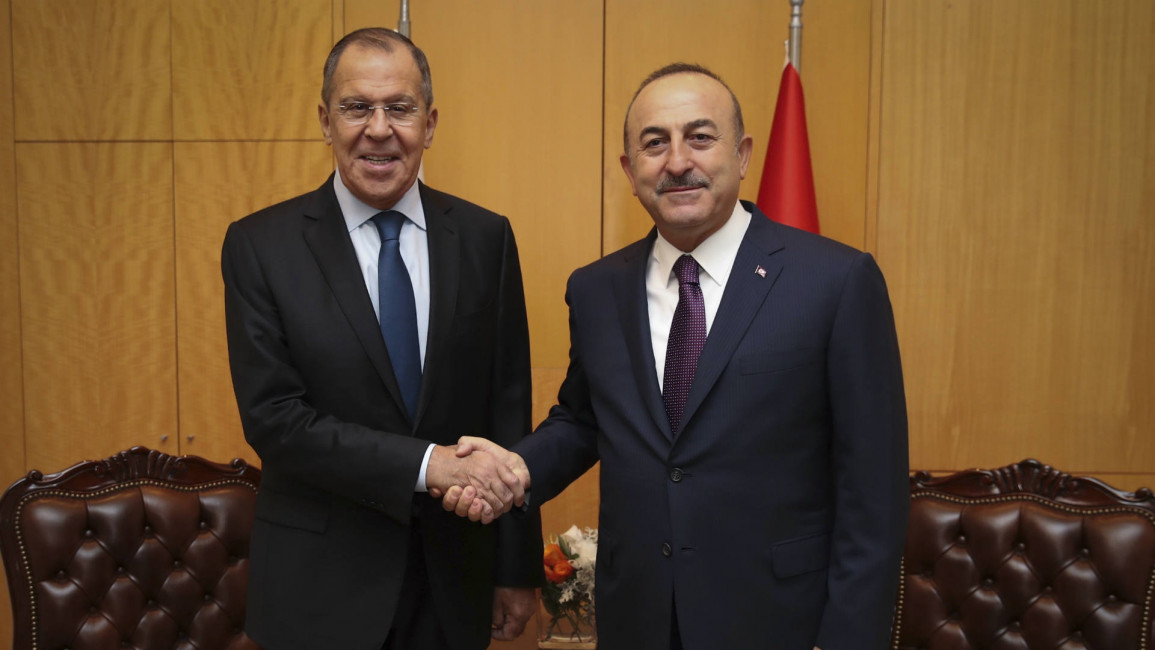Turkey hosts Syria summit to salvage delicate Idlib ceasefire
Turkish President Recep Tayyip Erdogan will host Russian President Vladimir Putin, French President Emmanuel Macron and German Chancellor Angela Merkel for the summit on the conflict, in which more than 360,000 people have been killed since 2011.
The talks come a day after seven civilians were killed by Syrian regime fire in the last major rebel-held bastion of Idlib, according to the Syrian Observatory for Human Rights, the highest death toll since a ceasefire was reached there last month.
Russia, which supports the regime of Syrian President Bashar al-Assad, and Turkey, which backs the rebels, agreed to create a buffer zone around Idlib, but violence has escalated dramatically leading up to the summit.
Turkey and Russia have held previous talks with Iran on the Syrian conflict, in efforts that have often been greeted with suspicion in the West, but Saturday's summit will be the first to include the European Union's two most significant national leaders.
Turkish presidential spokesman Ibrahim Kalin said on Friday that the primary goal would be to "clarify the steps to be taken for a political solution and to determine a roadmap".
Forming a commission to create Syria's post-war constitution, seen as a stepping stone to staging elections in the war-torn country, would be a particular point of emphasis, Kalin told the state-run news agency Anadolu.
A United Nations plan for a committee to draft a new constitution ran aground this week after Damascus blocked the proposal, provoking anger among western powers.
UN special envoy Staffan de Mistura, who will attend the Istanbul summit, said the Syrian government would not accept a role for the United Nations in selecting a list.
Idlib ceasefire under threat
The Istanbul talks will also discuss extending the ceasefire around Idlib, where aid groups have warned that a military offensive could spark one of the worst humanitarian disasters of the seven-year war.
Twitter Post
|
With an assault by government troops seeming imminent, Moscow and Ankara agreed on September 17 to create a 15-20 kilometre-wide demilitarised zone ringing Idlib as Turkey sought to avoid an attack leading to a further influx of people across its border.
However shelling in the area continued intermittently and has ramped up in recent days.
On Friday, Syria's UN envoy Bashar Jaafari maintained that the buffer zone is temporary and that Idlib would eventually revert to government control.
Meanwhile France hopes to extend the ceasefire to enable aid convoys to get through to Idlib, home to three million people.
During a phone call with Putin before the summit on Saturday, Macron reiterated his objectives to "extend the ceasefire in Idlib, prohibit chemical weapons, ensure access to humanitarian aid and find a timetable for the political process," the Elysee palace said.
'Modest expectations'
The participants talked down hopes of a long-term solution ahead of the summit, with the Elysee palace saying there were "modest expectations" and Putin's spokesman Dmitry Peskov urging all sides to be "realistic".
Peskov said "the issue of the day is to reconcile different formats in order to synchronise our watches, to negotiate, and to attempt to identify common topics".
Syria's opposition, which has previously described Russia's military intervention in 2015 as an occupation, on Friday said it welcomed dialogue with Moscow, signalling readiness for more concessions following the Assad regime's battlefield successes.
Meanwhile German Defence Minister Ursula von der Leyen said that "reconstruction to the profit of the dictatorship of Assad is not conceivable".
"There will be only investment into Syria if there is a satisfying political process that includes all parties," she told a security conference in Bahrain on Saturday.
At the same conference, US Defence Secretary Jim Mattis said Russia is no replacement for the United States.
"Russia's presence in the region cannot replace the longstanding, enduring, and transparent US commitment to the Middle East," Mattis said.
The summit also takes place in the aftermath of journalist Jamal Khashoggi's murder in the Saudi consulate in Istanbul on October 2.
Turkish media reported that Erdogan will discuss the crisis in one-on-one talks with leaders on the summit's sidelines.
The summit was set to start around 3:00 pm local time (1200 GMT) and the four leaders were expected to issue a statement ahead of individual press conferences.



